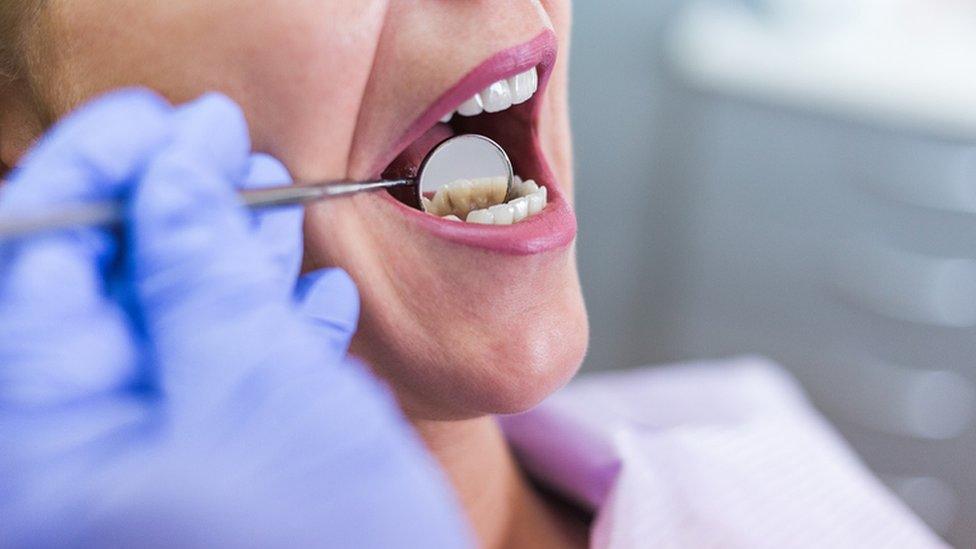Dentists: Why is it so difficult to find treatment in Wales?
- Published
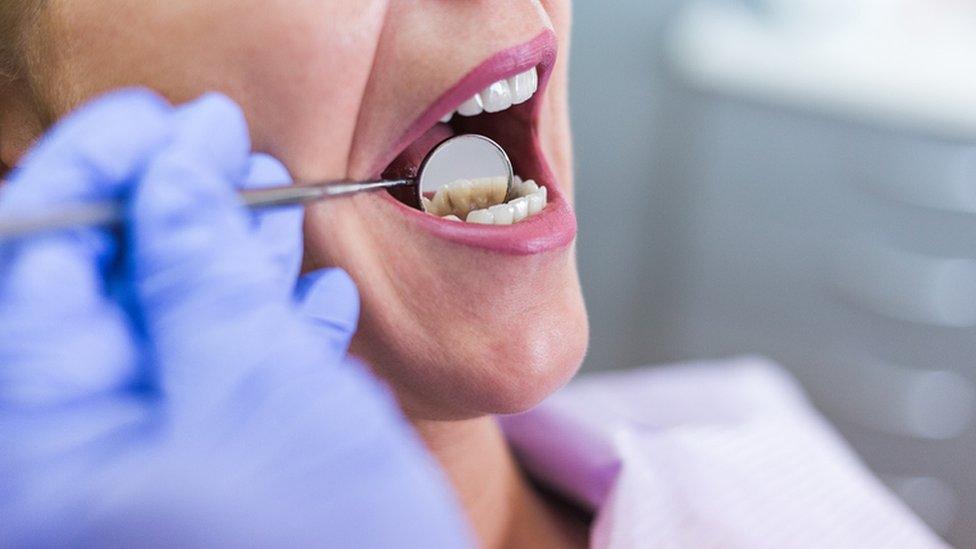
Many people in Wales have been struggling to find a dentist
Many people in Wales have struggled to find a dentist recently - and for some offered treatment, they have found it hard to afford the bill.
Melanie Fudge-Horton, for example, did not have an NHS dentist, so had to go private to have a root canal.
But after being told it would cost £1,000 to save the tooth, she paid £50 to have it extracted instead.
There are about 1,400 dental surgeries in Wales, and many will have patients they won't see this year.
One dentist believes the situation will improve for those on waiting lists, but on the whole, we will have to get used to being seen less often.
How many dentists are there in Wales?
The number of dental practices in Wales has dropped from 1,506 in 2019 to 1,472 in 2020 and 1,389 in 2021.
All will perform a mixture of NHS and private work, according to Dr Russell Gidney, who has a practice in Chepstow, Monmouthshire.
The reason they do both is because they get quotas for their NHS work, which limits the amount they can do. He believes the system needs reforming.
Also, there is some work you can't get on the NHS, such as cosmetics and implants.
Why are people struggling to find a dentist?
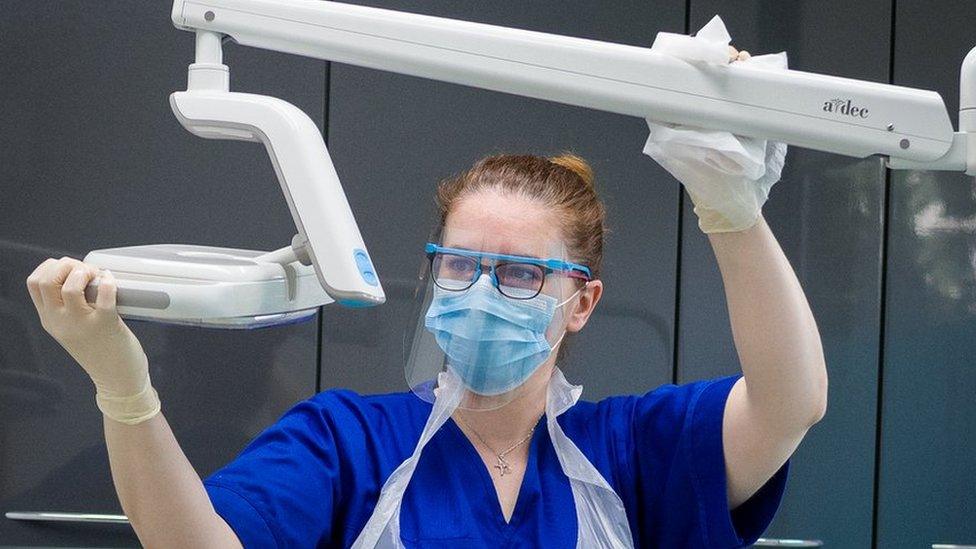
Covid created large backlogs with people waiting for routine check-ups
Dr Gidney, who is also chairman of the British Dental Association's Welsh General Dental Practice Committee, believes funding is an issue.
"A lot of us don't want to leave (the industry), but I've been doing it 20 years and every year it gets harder," he said.
He believes the NHS budget for dentistry is enough to cover about half the population.
There are 9,000 people on his NHS list, for example, but this year he will only see about 5,500 of them.
On top of this, his surgery will be able to see 1,800 new patients, which means the other 3,500 existing patients will have to wait until 2023.
"We are prioritising those that have not been seen the longest. For those we have seen most recently, we are recommending a six month recall, but it will probably be a year," he added.
Did Covid make the situation worse?
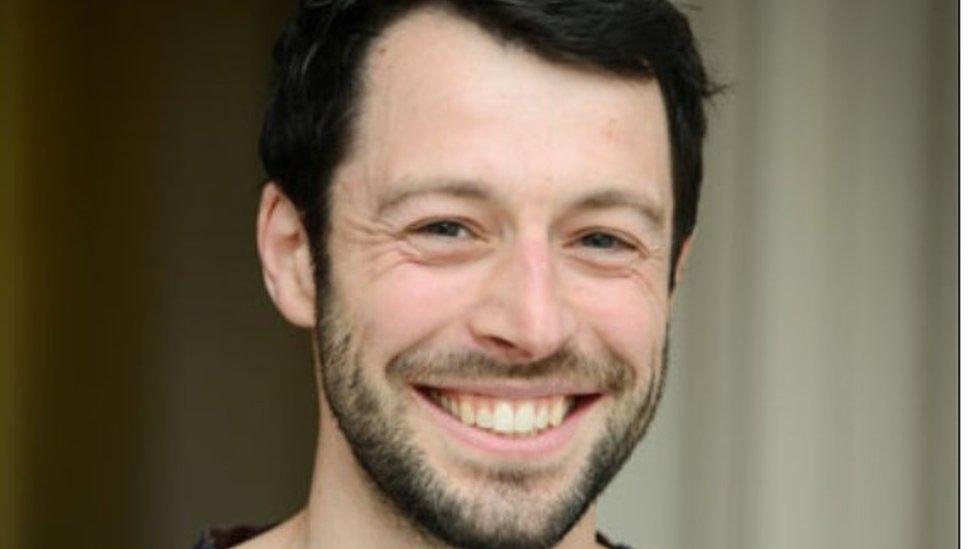
Dr Bysouth works at dental practices in Llandeilo and Llandovery, Carmarthenshire
Over the past couple of years, the pandemic has caused disruption and problems in most aspects of our lives, and dentistry is no different.
After the first lockdown alone, Carmarthenshire dentist Tom Bysouth described dentists as "firefighting" to catch up with a huge "backlog"
Some had been seeing as few as 10 patients a day when they reopened because of Welsh Government rules around ventilating surgeries to ward off the virus.
New guidelines in August 2020 meant a new patient could be seen every 20 minutes not every hour, which did help. But it created a large backlog.
How many people saw the dentist during the pandemic?
Prior to the pandemic, just over 2.3 million courses of treatment were completed each year by NHS Wales dentists.
But latest figures show 544,755 courses of treatment were recorded in 2020-21 - a drop of 76.7%.
Fewer than 3,500 children's dental examinations were recorded in 2020-21, a decrease of 99.4%.
Will the situation improve over time?
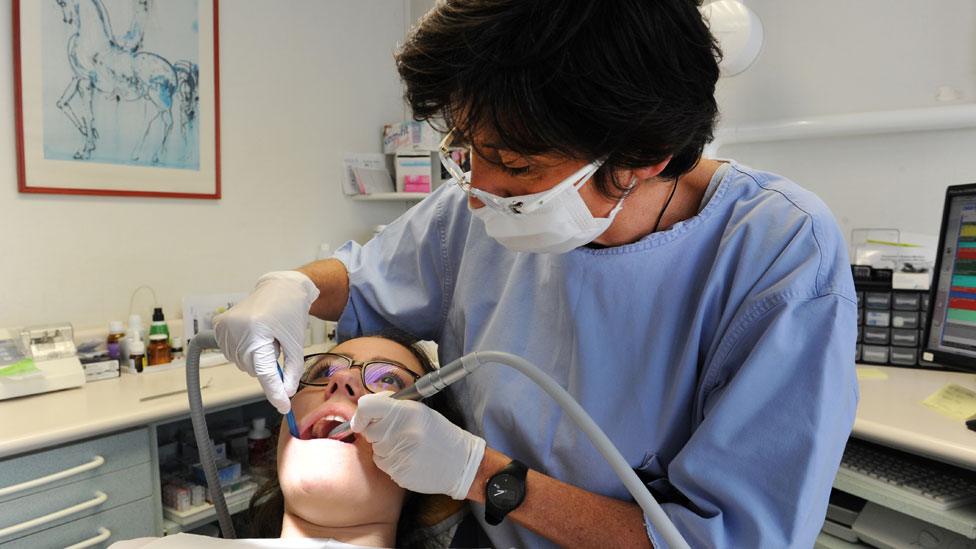
We will have to get used to see the dentist less often, according to Dr Gidney
"The short answer is no," according to Dr Gidney.
However, he believes access for people who do not currently have a dentist is getting better.
He has 1,000 on his waiting list, and if he saw them and nobody else, it would take him about five months to get round to them all.
While he is working through the list, he is seeing his regular patients who are "low risk" less often.
"It's a double-edged sword. There's more access to new patients but at the expense of others," he said.
"Early detection is vitally important. A little hole there now that you don't know about could be a root canal or filling when you do."
What happens if I have an emergency?
There is good emergency cover in most areas, according to Dr Gidney.
However, he said often this is "a temporary fix, to put you out of pain and make you stable".
It is co-ordinated by your local health board, and most surgeries provide a few slots so there are appointments available.
However, if you approach the surgery directly, they will usually only be able to carry out emergency work privately.
What if I can't afford treatment?
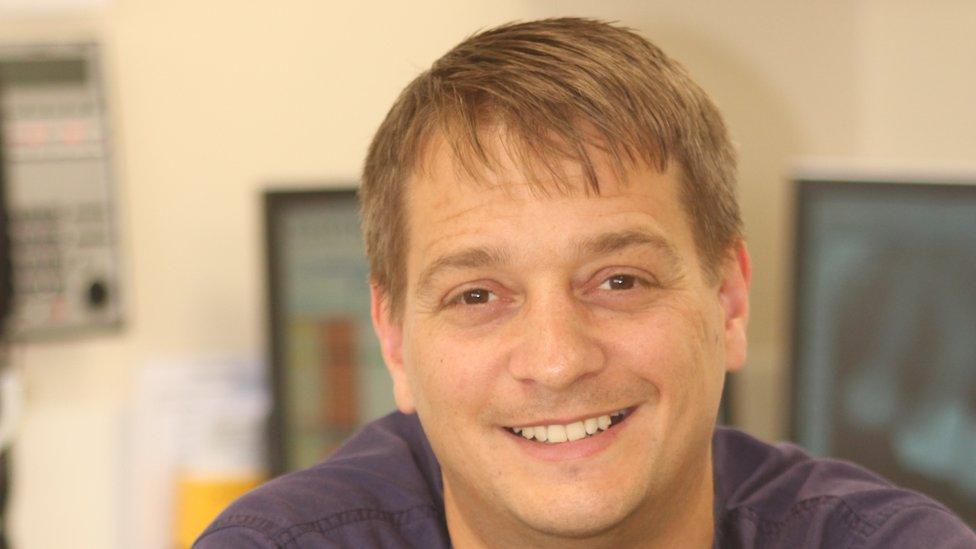
Dr Russell Gidney wants the system to be reformed to help more people to be seen
Those on the lowest income receive free treatment, but those that struggle most are just beyond this bracket, said Dr Gidney.
A check-up costs about £14, fillings and treatment for gum disease about £47, with the cost for more complex work rising to around £200.
Dr Gidney said there are a few rare exceptions, but most apart from the poorest must pay for treatment.
How can I find a dentist more easily?
Contact your local health board, some hold a centralised list where they can allocate you a practice and tell you if they are taking on.
They also advise on lengths of waiting lists for different dental surgeries.
Is this just a problem for Wales?
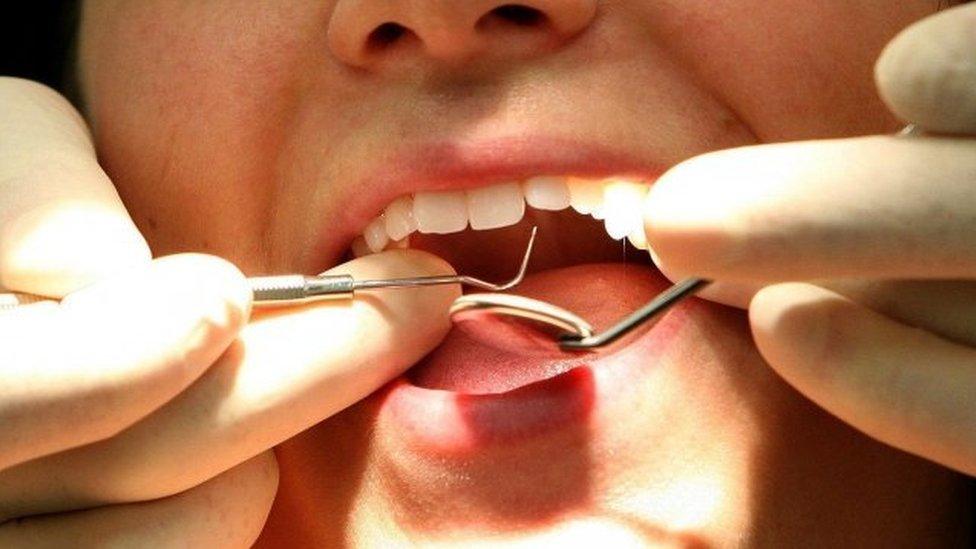
Problems have also been reported over the border in England
People in England are facing the same issues, with dentists closing to new people.
Healthwatch England, the NHS body representing patients, said the problem was made worse by the rising cost of living and needed "urgent attention".
It said some people were living in pain, unable to speak or eat properly, because they could not find treatment.
And it warned the poorest were suffering most as they were least able to afford to pay for private dentistry.
It said the issue was creating a two-tier system - dividing the rich and the poor - and called for action.
What's being done to change the situation?
The Welsh government said the pandemic meant fewer people could be treated but now guidelines have been revised to prioritise at-risk groups and those with urgent problems.
It added: "We have asked health boards to encourage dental practices to recall people who are overdue their routine NHS dental examination and to provide appropriate NHS treatment for all.
"The return of services will continue to be gradual and will depend on capacity within individual practices.
"We are working with the British Dental Association and the wider dental community to reform the contracting arrangements for NHS dental provision.
"This will enable dentists to focus on prevention, providing care for existing patients and include a need to see new NHS patients."

LIFE IS SWEET: Picture perfect cakes and the people who make them
HEY, MACH ARENA: Highlights from the Machynlleth Comedy Festival 2022

- Published12 September 2020
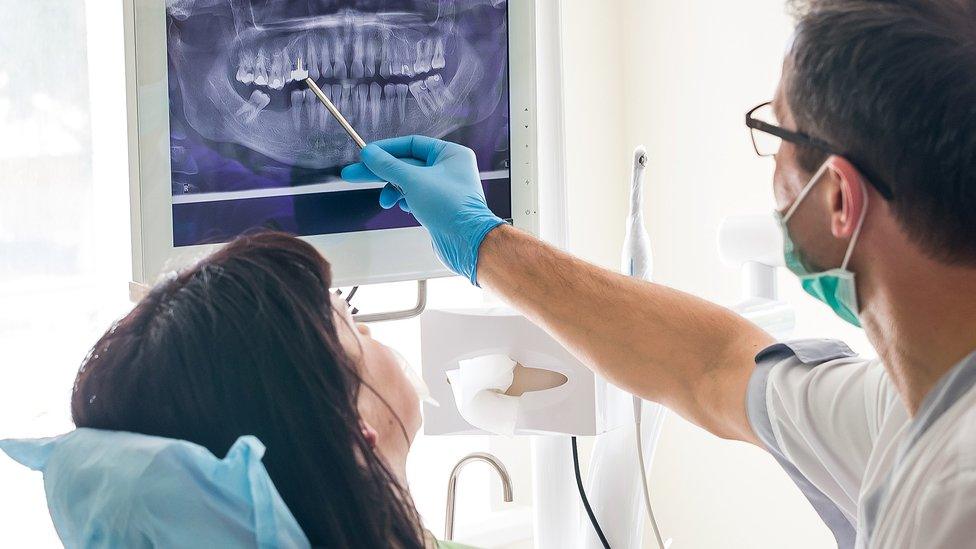
- Published11 May 2022
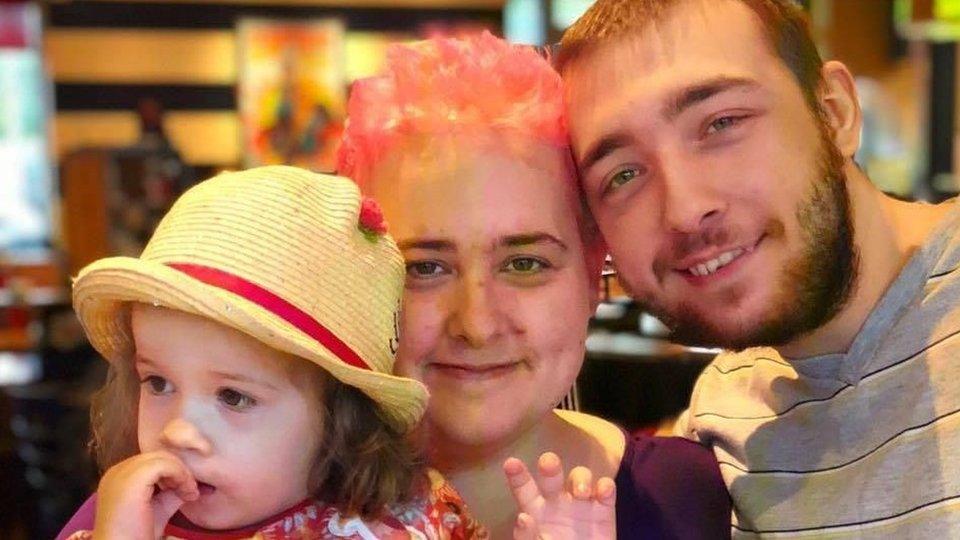
- Published9 May 2022
